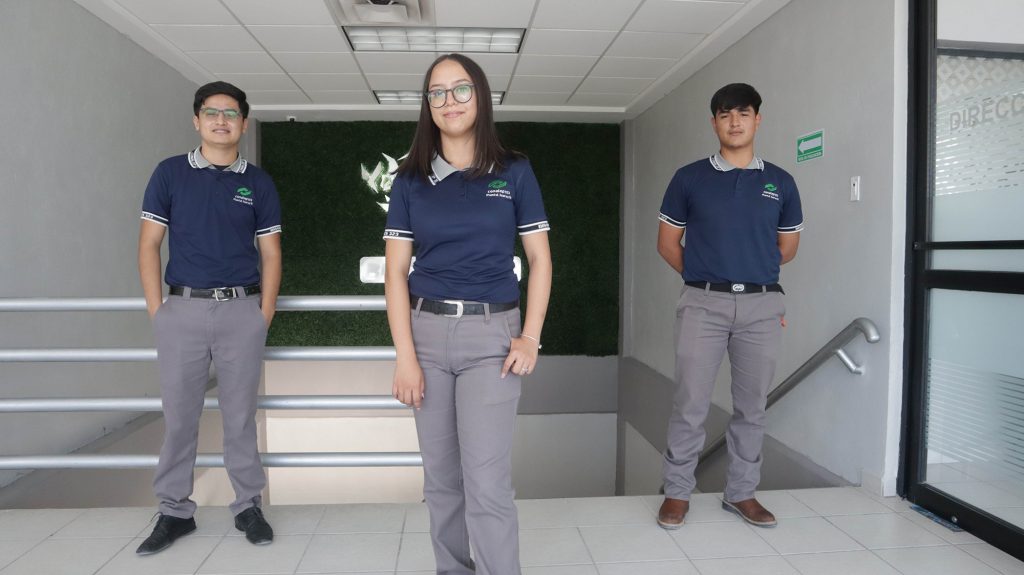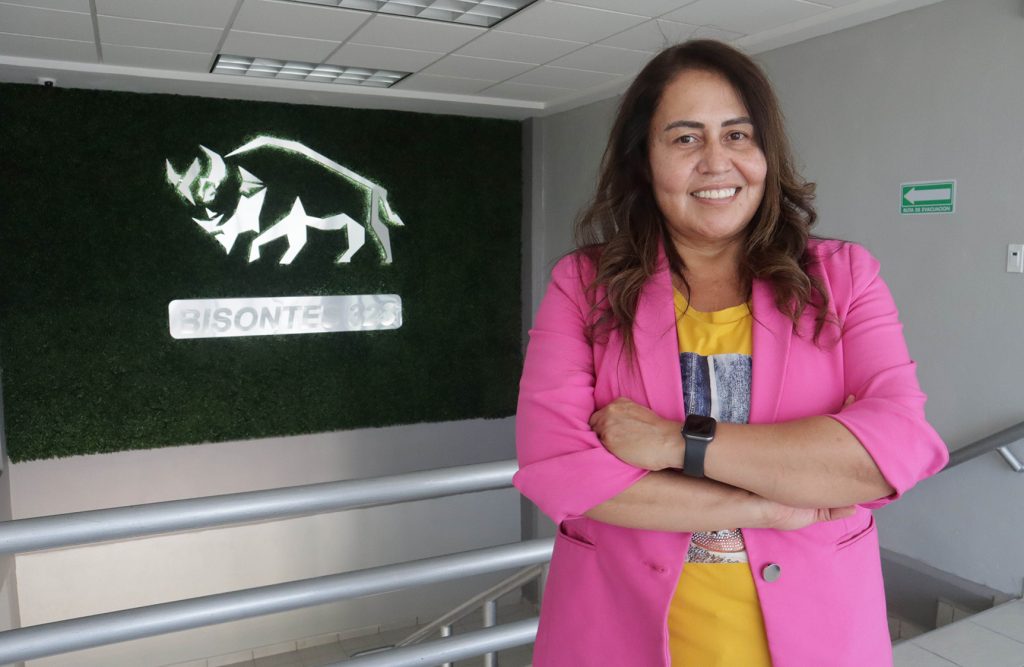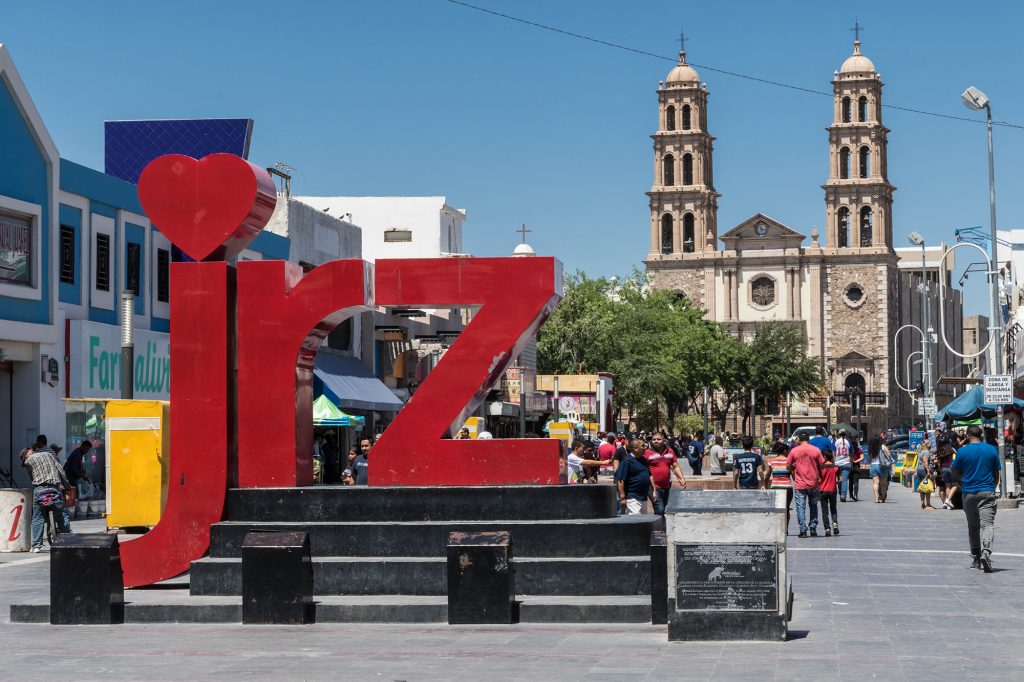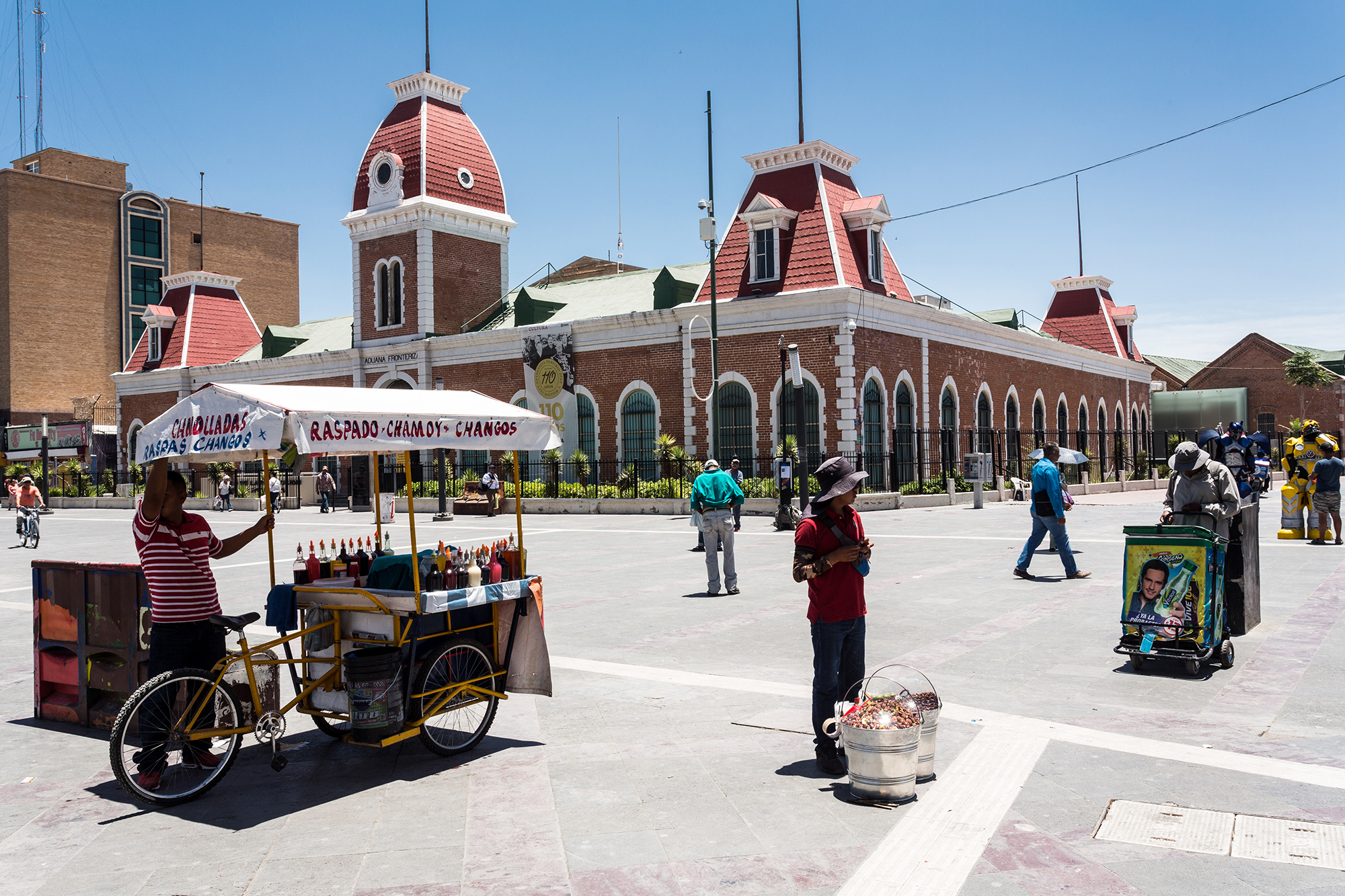In Ciudad Juárez, a Mexican city brimming with factories just south of El Paso, Texas, Daisy Aguilera Suarez’s mother often goes home exhausted from 13-hour shifts sewing automobile air bags. Alexis García Amador’s father fixes cars and houses on weekends to make ends meet between shifts as an electronics factory supervisor. Roberto Delgado Muñoz’s father does construction when he’s not running the family’s busy food truck.
Like many people in Juárez, the three parents work low-wage jobs to support their families. Nearly two-thirds of employees here work in manufacturing, where many jobs are unskilled and pay an average of 267 pesos, or $13, a day.
But teenagers Aguilera, García and Delgado are working toward a different future by studying computer science with a Microsoft program called Technology Education and Literacy in Schools, or TEALS. Their school, Conalep III, is one of four in Juárez now partnering with TEALS in the program’s first expansion into Mexico, and the first time the curriculum has been available in Spanish.

Conalep III students (left to right) Roberto Delgado Muñoz, Daisy Aguilera Suarez and Alexis García Amador
“This is a very cool opportunity, because it is helping people to learn about computers and get ahead in their lives,” says Delgado, who is 18, works at his family’s business and likes video games and dancing.
He’s interested in a food industry career like his parents, who didn’t finish high school, but is also studying industrial electricity and computer science so he can earn more and be part of the region’s growing digital economy.
“You have to keep yourself updated with the latest technologies because this is what gives you a future,” he says. “You have to modernize yourself.”
TEALS pairs technical volunteers from industry with curriculum and teachers to bring computer science education to underserved students. Last school year, it taught coding skills to 14,000 students in schools in the United States and Canada to help build better job opportunities.
The pilot program in Juárez uses a new approach that empowers local nonprofits to take the lead, making sure teachers and volunteers have the training and resources they need to teach students computer science to better equip them for promising careers.
“TEALS can open up a global opportunity for students,” says Alma Rosa Cital, principal at Conalep III, a technical school that prepares low-income students for specialized careers like electronics or business administration. “Not only for students, but their families, city and country.”

Conalep III principal Alma Rosa Cital
Surrounded by dirt roads on the outskirts of town, Conalep III serves mostly students of workers in maquiladoras, or foreign-owned factories, where wages can be extremely low. But Cital’s goals are larger than helping students find good jobs. She is nurturing them to become “young pioneers” who can look beyond their surroundings, transform their lives and inspire others to do the same.
“My vision as the principal is to give youths insight that there is more out there that they can achieve, that they can change the world and make a difference wherever they are,” Cital says.
The four Juárez schools already offer some computer science, but TEALS provides advanced curriculum from Carnegie Mellon University and professional training to help students and teachers learn more.
German Parra, a math and computer science teacher at COBACH 6, a general education school, welcomes the support to teach Python, a versatile programming language. Orlando Daniel Avitia, director of CECYT 22, a technical school for low-income students, says TEALS will give kids a wider panorama of potential careers. CBTis 114 is the fourth school partnering with TEALS in this initial stage.
TEALS has helped bring computer science skills to more than 93,000 students over the past 12 years, operating in 31 states, Washington, D.C., and British Columbia, currently involving more than 700 companies and 1,650 volunteers. It was already flourishing across the Rio Grande in El Paso, where students at 23 schools are in the program this year.
During the COVID-19 pandemic, virtual classroom options have allowed volunteers to participate remotely using video conferencing and other interactive features. Improving STEM education has long been a goal for Alejandra De La Vega, former chief of staff for the governor of Chihuahua, where Juárez — population 1.5 million — is the largest city. With 350 assembly plants, the state is a manufacturing hub in the vibrant, binational region. But generations of families have remained stuck in unskilled jobs now slowly disappearing with automation.

Alejandra De La Vega, former chief of staff for the governor of Chihuahua (photo courtesy of De La Vega)
“Kids see their father and mother working in manufacturing all their life, and their quality of life never improved,” says De La Vega, a former state secretary of innovation and economic development.
“TEALS is such a great opportunity for the young people of Juárez because it provides necessary skills for jobs of the future and inspiration for kids to really look at STEM careers as a life changer.”
Inspiration often comes from industry engineers, who volunteer to share professional insights along with coding skills. For TEALS volunteer Alan Soto García, software manager of a software and industrial automation company in Juárez, volunteering is a way to increase the quantity and quality of computer science education in Mexico.
Soto still remembers a computer science teacher who couldn’t explain the purpose of programming outside of school, beyond homework and theoretical lessons. As an engineer and entrepreneur, he works to convey his real-world experience to young people, helping them see coding as a tool base for a better future.
“I think TEALS can help students change their mindset and think about programming not only to be a programmer, but also as a way to start a new business based on technology, automation and digitalization, which are the future of the labor market,” says Soto, who has worked for the company INAUSO for three years.
He also believes TEALS will lead to stronger local talent that can attract companies to the city and help them grow. He often has to search outside of Juárez and even Mexico to find qualified programmers and hopes that TEALS students will someday want to work at INAUSO.

Ciudad Juárez (photo by Brian Smale)
“I always like to teach new programmers at our company how to solve problems and be better programmers, sharing our experiences with them so they can learn from our mistakes and avoid them,” he says. “That way, their learning curve will be much shorter than ours.”
Students Aguilera, García and Delgado have all studied basic computer science while overcoming challenges like poor internet connections and not having a computer at home. They’re excited to learn more and have a less physically demanding career than making electronic parts and medical devices in a maquiladora. Aguilera’s family includes brick layers and factory workers like her mom, who wasn’t able to finish high school, married young and now often works 50 hours a week.
Aguilera, who is 17 and specializing in telecommunications, dreams of going to college and excelling in a career that allows her to travel and see the beach for the first time.
“I would like to have a better job than the one my mom has, in which I can have a good salary without the need for so much physical exhaustion, and maintain a better quality of life for me and my family,” she says.
Classmate García, who is also 17, wants to study automotive engineering in college and says TEALS will prepare him for job opportunities his parents didn’t have. His mother works in a semiconductor factory, and neither parent went to college.
“I am very interested in computer science, as it is the next step towards a good future for my generation and myself,” he says.
For Microsoft, launching TEALS in Juárez is part of a goal to make computer science education equitable — a challenge in a city where half the elementary and junior high schools lack internet.
TEALS is such a great opportunity for the young people of Juárez because it provides necessary skills for jobs of the future and inspiration for kids to really look at STEM careers as a life changer.
But as manufacturers digitize their work, the need for more digital training has grown. Last year, the state of Chihuahua worked with Microsoft to start operations at the new Center for Artificial Intelligence for maquiladora workers to learn machine learning, blockchain storage and other specialty skills.
“TEALS is an important initiative to train youths in STEM skills and help Juárez move to the digital transition era,” says Omar Saucedo, manager of Microsoft TechSpark in Mexico. TechSpark is the company’s civic program, aiding in job creation and digital skilling by implementing programs like TEALS and other economic opportunities through on-the-ground community partnerships and advocacy.
Launching TEALS in Juárez took years of effort from teachers, schools, government, the technology nonprofit Fundación Axcel and the program’s sponsor, FECHAC, a nonprofit focused on improving life for millions of people in Chihuahua.
“We need trained teachers and young people who can get technological knowledge to look for a better salary, a better job and better opportunities,” says Gilberto Cueva, president of FECHAC, which represents 40,000 businesses.
“With Microsoft and this program, we can definitely achieve that goal and transform the lives of young people in our region.”
Top photo: Ciudad Juárez (photo by Brian Smale)

